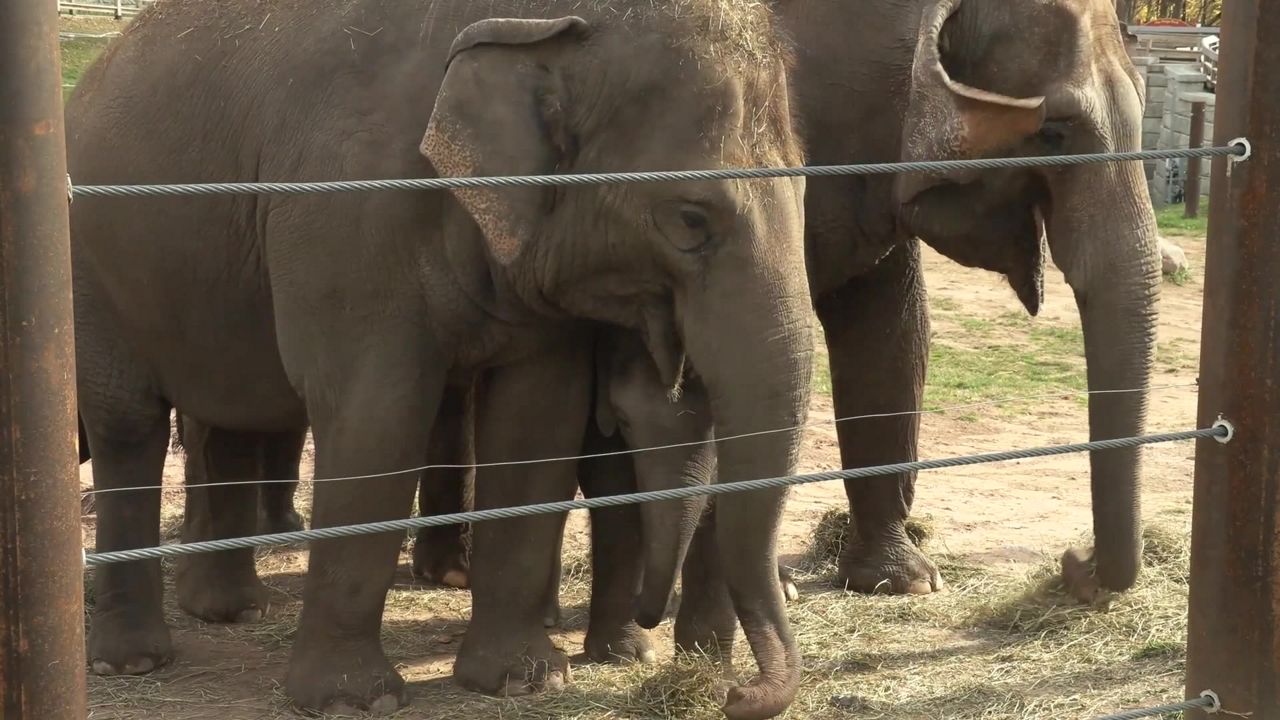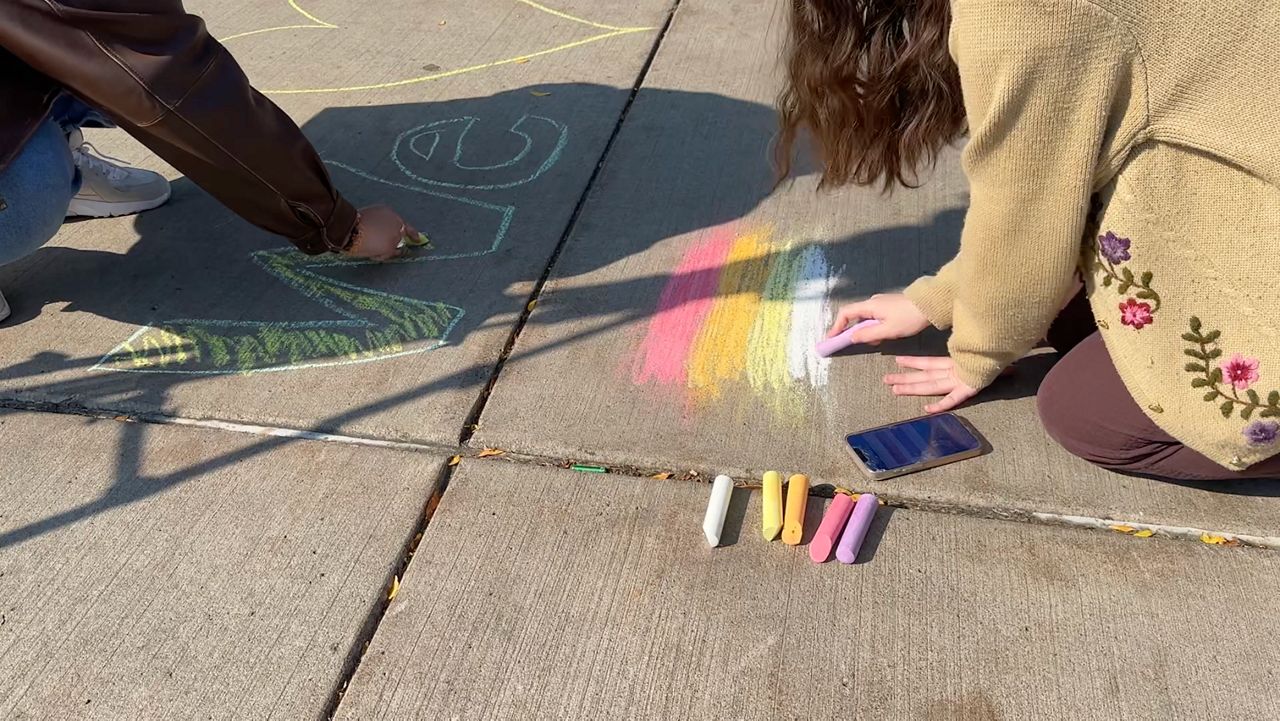SYRACUSE, N.Y. — At the Rosamond Gifford Zoo, the only elephant twins in North America, 2-year-olds Tukada and Yaad, received a new vaccine against a life-threatening virus, elephant endotheliotropic herpesvirus (EEHV).
Elephant specialist Heather Jennings said the twins were already special to begin with, as they are so rare.
"They are called our 'miracle twins' because they should not have happened. There's a less than 1% chance for elephants to even have twins, and then the chance of them surviving is even less than that," Jennings said.
The twins received the new mRNA vaccine for EEHV in October, which has a 85% mortality rate among young elephants. Almost all elephants have some form of the virus, but factors like age, immunity level, and exposure can influence the severity.
"They're going to be exposed to this virus, which all of our elephants have some form of. It's not that it's anything bad, it's developed alongside elephants for about 2,000 years. Almost like chickenpox, you kind of circle everybody in a room and expose them when they're younger," Jennings said.
As newborns, elephants gain EEHV immunity from their mothers, but it decreases over time. After the October vaccination, the goal is not only for the twins to survive, but to thrive and live a long life together.

Zoo visitor Linda Leo said the twins spend most of their day playing together, and she looks forward to watching them grow up.
"They chase each other around. When one moves, the other one moves. Everybody who works here takes really good care of the animals. To have twins survive, that's special," Leo said.
The twin elephants are just a select handful who have received the new vaccine, following the death of their brothers in 2020 from EEHV. Jennings has been working with the elephants at the Syracuse zoo for over 20 years, and said it’s painful to watch how the virus attacks these young animals — their faces swell up, tongues turn blue, and they essentially bleed from the inside out.
"The bond you feel with these guys, and to lose them, it's horrible. There's no amount of trauma that equates to that. We're actually around the time that they passed away in 2020, and it just hurts you. With elephants, they're supposed to live so long," Jennings said, fighting back tears.
Asian elephants can live up to 48 years old, but EEHV can attack youths anywhere from the ages of 1-15 years old. Jennings said no one feels the loss and burden more than the trainers who raised them.
"There have been people who have left our field from this. You can only deal with loss so much” she said. “We're literally reaching for anything. Anything that helps them just the smallest bit would be amazing. This gives you hope."
Future Journalists Project
In partnership with Syracuse University and the Newhouse School of Public Communications, the Future Journalists Project showcases work by the next generation of journalists — studying at Syracuse — as they report on the issues impacting them and the community.









